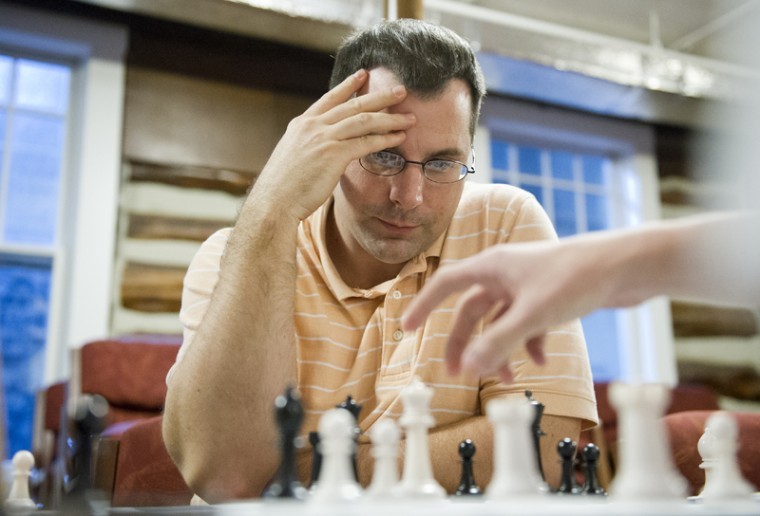Thousand Words: April 3, 2012
April 3, 2012
“Check,” Samuel Hunt murmurs, capturing 17-year-old Alex Nealy’s last chess piece before attacking the king. “You’re gonna lose. You don’t even have the confidence to win. That’s what it takes.”
Hunt, a WKU graduate student, along with a handful of other students, gather at the Faculty House every Thursday evening to practice chess, socialize and improve their intellect.
The primary initiator of the club, Hunt sees chess as a way to develop critical thinking.
“It’s not so much learning, memorization and regurgitation — chess is really a method of thinking about how to think about things. Lots of great mathematicians are expert chess players,” Hunt said.
Hunt sees social outcomes in chess too. “Kids who aren’t big-time football players can play chess — handicaps, anything — they can still play,” he said.
Ready to pursue football in high school, Hunt discovered chess by chance when he was in the eighth grade.
“I heard ‘chess club’ over the loudspeaker during practice. Nobody in my family played. I just wanted to try it,” he said.
Hunt was quickly addicted to the game.
“I played one game against a high school kid and got crushed. I played again because he called me a sissy, and then I beat him.” As a high school freshman, Hunt placed first nationally.
“I was really just this country boy who’d rather play in the woods than go to school,” he said. “I was all of a sudden the smart kid. Things became completely different.”
The grad student hopes to bring about a similar transformation for students at WKU.
“Things were different for me after I started playing. I think it’s that way for a lot of these kids,” Hunt said.
The club has brought about change in Kentucky by initiating 25 school chess programs across five counties.
The club also enjoys competition. WKU will host the fourth annual Chess Open at the Faculty House April 21 and 22. Russian Super Grandmaster Vladimir Malakhov and 14-year-old Woman Candidate Master Claudia Munoz will lecture and play at the event.













